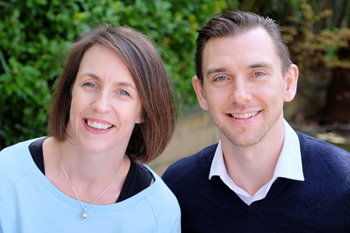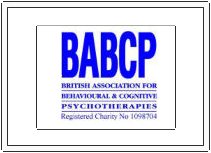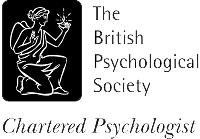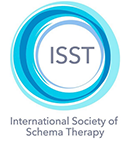Recommended Literature and Current Research
This is a really exciting time to be interested in schema therapy. There are now a number of robust studies suggesting that schema therapy is effective for those with more complex difficulties such as borderline personality disorder and Cluster C presentations (avoidant, obsessive-compulsive and dependent personality disorder). There are also indicators to suggest that it is useful for individuals with Axis I presentations including chronic depression and eating disorders, and it is recommended for individuals in a forensic setting. There is also exciting work looking at some of the hypothesised core components of schema therapy, such as limited re-parenting and imagery work, to explore further their role within the context of therapy. If you are interested in finding out more, have a look at the suggested reading below.
Core Recommended Reading:
Arntz, A. & Jacob, G. (2012). Schema therapy in practice: An introductory guide to the schema mode approach. Chichester: Wiley-Blackwell.
Arntz, A. & van Gendered, H. (2009). Schema therapy for borderline personality disorder. New York: Wiley.
Bakos, D. S., Gallo, A. E., & Wainer, R. (2015). Systematic review of the clinical effectiveness of schema therapy. Contemp Behav Health Care, doi: 10.15761/CBHC.1000104
Cutland Green, T and Heath, G. Schema Therapy. In, Carr, A., & McNulty, M. (Eds.). (2016). The handbook of adult clinical psychology: an evidence based practice approach. Routledge.
Farrell, J, Reiss, N and Shaw, I (2014). The schema therapy clinician’s guide: A complete resource for building and delivering individual, group and integrated schema mode treatment programs. New York: Wiley.
Masley, S. A., Gillanders, D. T., Simpson, S. G., & Taylor, M. A. (2012). A systematic review of the evidence base for schema therapy. Cognitive Behaviour Therapy, 41(3), 185-202.
Young, J. E. & Klosko, J. S. (1998). Reinventing your life. New York: Penguin.
Young, J. E., Klosko, J. S. & Weishaar, M.E. (2003). Schema therapy: A practitioner’s guide. New York: Guildford.
Supplementary Books:
Jacob, G., van Genderen, H., & Seebauer, L. (2015). Breaking Negative Thinking Patterns: A Schema Therapy Self-Help and Support Book. Wiley-Blackwell.
Van Vreeswijk, M., Broersen, J. & Nadort, M. (2012). The Wiley-Blackwell Handbook of Schema Therapy: Theory, Research and Practice (1st ed.). Wiley & Sons.
Supplementary Papers:
Bakos, D. S., Gallo, A. E., & Wainer, R. (2015). Systematic review of the clinical effectiveness of schema therapy. Contemp Behav Health Care, doi: 10.15761/CBHC.1000104.
Ball, S. A., & Young, J. E. (2000). Dual focus schema therapy for personality disorders and substance dependence: Case study results. Cognitive and Behavioral Practice, 7(3), 270-281.
Bamelis, L. L., Evers, S. M., Spinhoven, P., & Arntz, A. (2014). Results of a multicenter randomized controlled trial of the clinical effectiveness of schema therapy for personality disorders. American Journal of Psychiatry.
Behary, W. T., & Dieckmann, E. (2013). Schema therapy for pathological narcissism: The art of adaptive reparenting. American Psychological Association, http://dx.doi.org/10.1037/14041-017.
Bernstein, D.P., Arntz, A., & de Vos, M. (2007). Schema Focused Therapy in Forensic Settings: Theoretical Model and Recommendations for Best Clinical Practice. International Journal of Forensic Mental Health, 6(2).
Bernstein, D. P., Nijman, H. L., Karos, K., Keulen-de Vos, M., de Vogel, V., & Lucker, T. P. (2012). Schema therapy for forensic patients with personality disorders: Design and preliminary findings of a multicenter randomized clinical trial in the Netherlands. International Journal of Forensic Mental Health, 11(4), 312-324.
Boterhoven De Haan, K. L., & Lee, C. W. (2014). Therapists’ thoughts on therapy: Clinicians’ perceptions of the therapy processes that distinguish schema, cognitive behavioural and psychodynamic approaches. Psychotherapy Research, 24(5), 538-549.
Farrell, J, Shaw, I and Webber, M (2009). A schema-focused approach to group psychotherapy with outpatients with borderline personality disorder: a randomized controlled trial. Journal or Behavior Therapy and Experimental Psychiatry, 40, 317-328.
Giesen-Bloo, J., Van Dyck, R., Spinhoven, P., Van Tilburg, W., Dirksen, C., Van Asselt, T., … & Arntz, A. (2006). Outpatient psychotherapy for borderline personality disorder: randomized trial of schema-focused therapy vs transference-focused psychotherapy. Archives of general psychiatry, 63(6), 649-658.
Hawke, L. D., Provencher, M. D., & Arntz, A. (2011). Early Maladaptive Schemas in the risk for bipolar spectrum disorders. Journal of affective disorders, 133(3), 428-436.
Hawke, L. D., & Provencher, M. D. (2011). Schema theory and schema therapy in mood and anxiety disorders: A review. Journal of Cognitive Psychotherapy, 25(4), 257-276.
Holmes, E. A., Arntz, A., & Smucker, M. R. (2007). Imagery rescripting in cognitive behaviour therapy: Images, treatment techniques and outcomes. Journal of Behavior Therapy and Experimental Psychiatry, 38(4), 297-305.
Nadort, M., Arntz, A., Smit, J. H., Giesen-Bloo, J., Eikelenboom, M., Spinhoven, P., … & van Dyck, R. (2009). Implementation of outpatient schema therapy for borderline personality disorder with versus without crisis support by the therapist outside office hours: A randomized trial. Behaviour Research and Therapy, 47(11), 961-973.
Renner, F., Arntz, A., Leeuw, I., & Huibers, M. (2013). Treatment for chronic depression using schema therapy. Clinical Psychology: Science and Practice, 20(2), 166-180.
Simpson, S. Schema Therapy for Eating Disorders. The Wiley-Blackwell Handbook of Schema Therapy: Theory, Research, and Practice, 143-171.
Weertman, A. & Arntz, A. (2007). Effectiveness of treatment of childhood memories on cognitive therapy for personality disorders: A controlled study contrasting methods focusing on the present and methods focusing on childhood memories. Behaviour Research and Therapy, 45, 2133-2143.
Wetzelaer, P., Farrell, J., Evers, S. M., Jacob, G. A., Lee, C. W., Brand, O. …..& Arntz, A. (2014). Design of an international multicentre RCT on group schema therapy for borderline personality disorder. BMC psychiatry, 14(1), 319.





